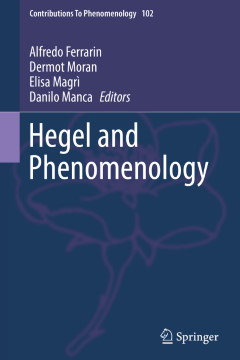Repository | Book | Chapter

(2019) Hegel and phenomenology, Dordrecht, Springer.
In the present essay, I will compare Hegel's and Husserl's conceptions of the history of philosophy. I will show how Hegel and Husserl recast Kant's idea of a philosophizing history of philosophy in two different ways. Both Hegel and Husserl share the conviction that reason unfolds itself in history. Nonetheless, whereas Hegel identifies the history of philosophy with the contingent manifestation of the self-actualization of the Idea, Husserl develops a critical history of ideas. On the one hand, Hegel conceives of the history of philosophy as a complex whole and each determinate philosophy as interpreting a specific articulation of the logical deduction of thought-determinations. On the other hand, perhaps influenced by Windelband, Husserl appropriates the Kantian thesis according to which the objects of the history of reason represent specific constellations of problems.
Publication details
DOI: 10.1007/978-3-030-17546-7_3
Full citation:
Manca, D. (2019)., Hegel and Husserl on the history of reason, in A. Ferrarin, D. Moran, E. Magrì & D. Manca (eds.), Hegel and phenomenology, Dordrecht, Springer, pp. 45-60.
This document is unfortunately not available for download at the moment.


